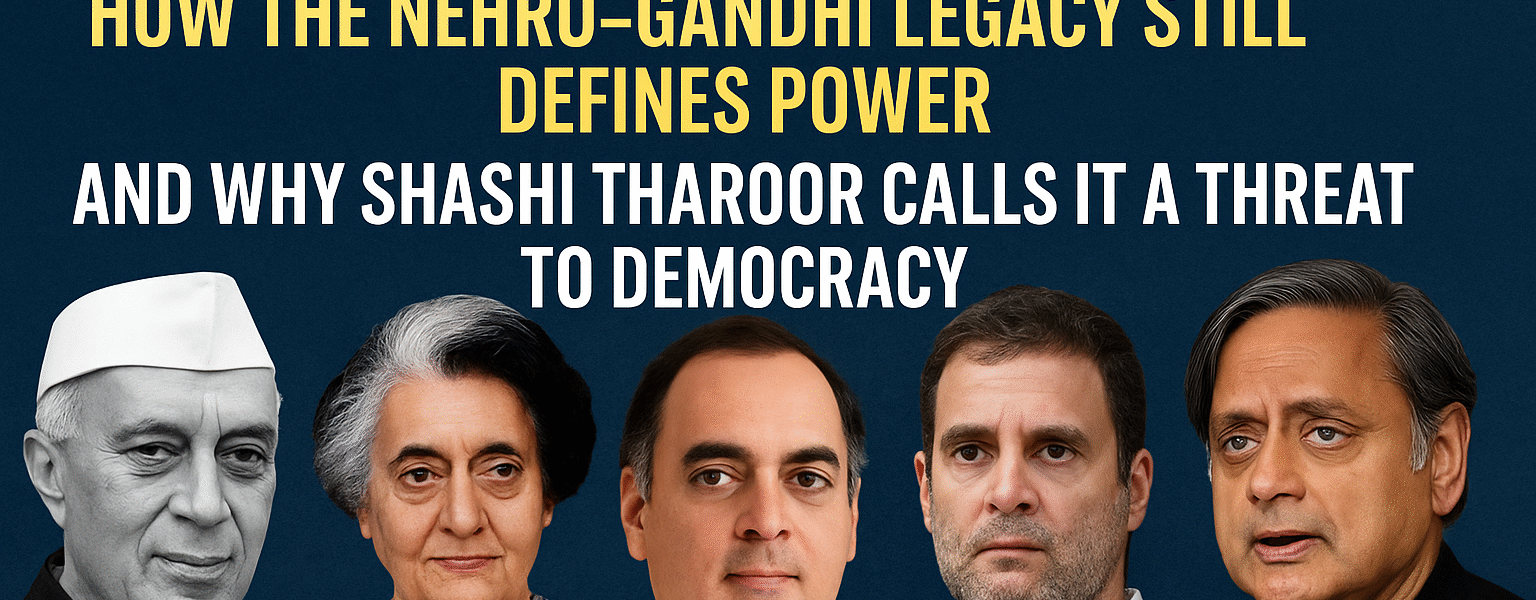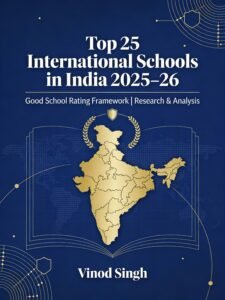Dynastic Politics in India: How the Nehru–Gandhi Legacy Still Defines Power, and Why Shashi Tharoor Calls It a Threat to Democracy
India’s democracy has lived for decades with a paradox: fiercely competitive elections, but an enduring belief across parties that political leadership can be inherited. That paradox is back at centre stage after senior Congress leader Shashi Tharoor published a widely discussed essay arguing that India must “trade dynasty for meritocracy,” bluntly stating that the Nehru–Gandhi family helped cement the idea of dynastic politics leadership as a birthright—an idea he says has now spread “across every party, in every region, and at every level.”
Tharoor’s remarks triggered immediate political crossfire. Some Congress colleagues defended the family’s legacy and sacrifices, while rivals amplified the critique as proof that dynastic politics is the Opposition’s core flaw. The media reported pushback within Congress the same day Tharoor’s comments surfaced; party MP Pramod Tiwari countered that no other family had shown similar “dedication and ability.” The BJP, meanwhile, seized on the article to renew “nepo” jibes, framing it as validation of their long-running charge against the Congress.
How the “family model – dynastic politics” took root
The Nehru–Gandhi lineage has defined the Congress brand since Independence: Jawaharlal Nehru, Indira Gandhi, and Rajiv Gandhi served as prime ministers; Sonia Gandhi, Rahul Gandhi, and Priyanka Gandhi Vadra have led or shaped the party’s course for decades. That sustained dominance linked national leadership to a single family in the public imagination and in party structure.
But the dynastic politics is now far broader than one party. As Tharoor notes, dynastic succession prevails across the political spectrum, replicated in both national and regional parties. Recent campaign exchanges—such as Amit Shah’s attacks on RJD and Congress for grooming heirs—show how dynasty remains a live electoral cudgel, even as parties accused of nurturing their own regional dynasts trade the same charges.
Shashi Tharoor Sends Stern Global Warning After Operation Sindoor: ‘India Will No Longer Tolerate Terror
The numbers: one in five lawmakers has a political lineage
The most comprehensive recent mapping by the Association for Democratic Reforms (ADR) and National Election Watch finds that about 21% of sitting MPs/MLAs/MLCs come from political families; in the Lok Sabha, the share rises to 31%—nearly one in three. That prevalence underscores how normalised the practice has become, well beyond the Congress.
Why economists worry: weaker incentives, clientelism, and slower development
A growing body of research connects dynastic politics to poorer governance and worse economic outcomes:
- Studies on India’s MPs show dynastic descendants underperform relative to non-dynasts because inherited networks and name recognition weaken performance incentives. Some papers document negative effects on local economic development under dynastic rule.
- Newer theoretical and empirical work links dynasties to clientelism and quid-pro-quo politics, with long-entrenched families better positioned to extract rents, steer public contracts, or influence bureaucratic appointments—classic channels through which growth quality suffers.
The macroeconomic implication is subtle but serious: if parties keep rewarding surnames over skill, policy selection and implementation degrade, bureaucratic independence erodes, and capital allocation tilts toward connected firms—slowing productivity and chilling private investment that depends on predictable, rules-based governance.
Dynastic politics vs. performance in a rising economy
India’s economy needs deep reforms—land, labour, judicial capacity, municipal finance, university governance—that demand technical competence and administrative stamina. Dynastic pipelines can narrow the talent pool and demotivate first-generation leaders, particularly women and youth from outside political families. Youth representation in the 18th Lok Sabha has already declined to low double digits, intensifying the concern that hereditary filters are squeezing out new entrants.
Tharoor’s case—and the backlash
In his essay, Tharoor argues that the foundational role of the Nehru–Gandhi era in popularising succession by pedigree later metastasised across states and parties, producing a cross-partisan “birthright” culture. He labels dynastic politics a “grave threat” to Indian democracy and urges internal reforms toward transparent candidate selection and merit-based leadership. Congress colleagues object that the family’s record includes nation-building, institutional design, and personal sacrifices, and that dynasty exists in rival parties too—a fair point that does not refute the structural harm of normalised inheritance.
The investigative bottom line
- Dynasty is systemic, not partisan. The Gandhi–Nehru era normalised dynastic politics at the national pinnacle, but data show entrenched family politics now pervade legislatures across India.
- Economic evidence leans negative. Rigorous studies associate dynastic descendants with worse performance and clientelism, risking a drag on India’s growth quality and governance standards.
- Politics remains weaponised. Parties attack each other over dynasty while grooming their own heirs; the result is status-quo entrenchment rather than reform.
- Reform is feasible. Parties can codify open primaries, publish transparent criteria for tickets, cap multi-member family nominations, and invest in leadership schools that promote first-generation candidates—steps consistent with Tharoor’s call for meritocracy.
Why this matters now
With national and state polls cycling constantly, India’s ability to convert headline growth into broad-based prosperity hinges on institutional credibility—clean candidate selection, independent bureaucracy, and competitive politics that reward competence over surname. Tharoor’s intervention may be uncomfortable for his party, but it has re-centred a debate India cannot dodge: Can the world’s largest democracy afford hereditary politics in its most critical decade of development?
dynastic politics in India, Gandhi family politics, Nehru Gandhi legacy, Congress dynasty, Shashi Tharoor on dynasty politics, family politics in India, Indian democracy and nepotism, Nehru Gandhi era, impact of dynasty on Indian economy, political families India, Tharoor dynasty statement, Congress internal politics
#DynastyPolitics #GandhiFamily #ShashiTharoor #IndianDemocracy #CongressParty #NehruGandhiLegacy #PoliticalReform #IndiaPolitics #FamilyRule #IndianEconomy
Discover more from
Subscribe to get the latest posts sent to your email.










2 COMMENTS